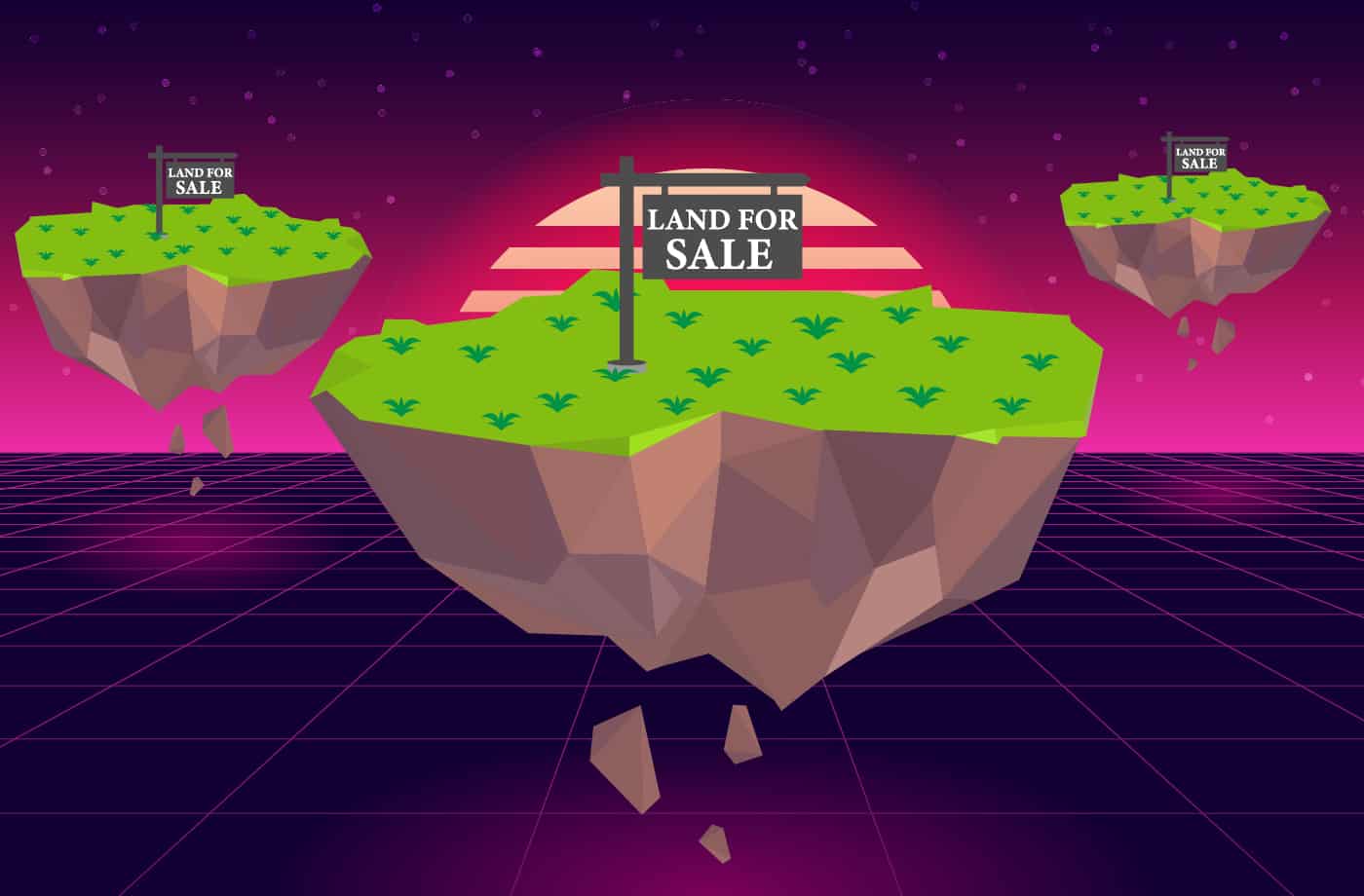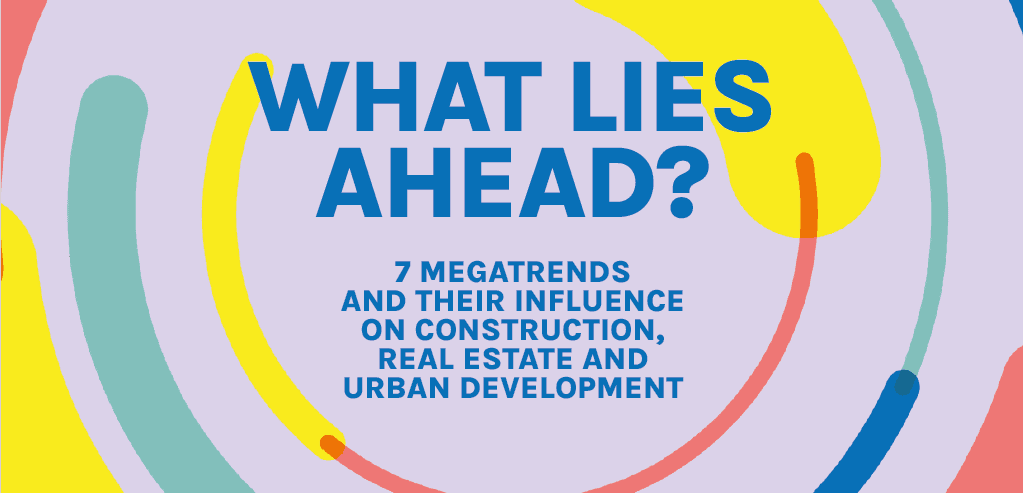
What if virtual real estate became a reality in tomorrow’s Metaverse?
4 minutes of reading
The year is 2032 and a billionaire media mogul writes a shocking book about making a fortune in under a decade by solely investing in virtual real estate and ultimately becoming one of the largest property owners in the Metaverse. He makes his fortune from the capital gains on reselling his virtual properties and from renting out his best positioned plots in these alternative worlds. The virtual property programmes that are set up there involve the best meta-space designers to create striking meta-architectural experiences. Is this fiction or a future reality?

The metaverse: an idea back in the spotlight
The metaverse is a term coined in 1992 by the science fiction author Neal Stephenson. It describes a virtual world, a “social infraworld where one could visit a museum, organise a meeting or do one’s shopping in virtual reality,” according to France Culture. However, the concept of a parallel virtual world behind the term “metaverse” dates back to the 2000s, when Second Life and Everquest were already establishing three-dimensional virtual universes that could be accessed via a computer, as were many video games. World of Warcraft, the massively multiplayer online game, creates social interactions in an online world, as does the multiplayer version of the Minecraft sandbox game. The social experiences that take place in these virtual worlds are becoming more diverse: in 2020, Fortnite, for example, hosted a live concert by Travis Scott via an avatar… Since Facebook’s parent company changed its name to Meta, interest and use of the term metaverse has significantly increased. The Internet powerhouse sees itself as the leader of a three-dimensional universe in five years’ time, 100% managed by its company, and recently advertised during the 2022 Superbowl in the United States as a sweet haven from real-life problems. With its Oculus VR headset, considered as the ideal means of accessing the metaverse, the company is clearly aiming to collect more data from its users and to sell various products and services through the metaverse platform. Some state players are also taking part in the game. The island state of Barbados recently announced its intention of creating an embassy in the metaverse. This does not, however, refer to the private, centralised metaverse of Facebook, but to the equally private but decentralised metaverse of Decentraland. The French newspaper Le Figaro reports that the idea of “an embassy in the metaverse is proof of Barbados’ spirit of initiative in bringing international relations and diplomacy into the technological age,” according to Gabriel Abed, Barbados’ ambassador to the United Arab Emirates and a former cryptocurrency entrepreneur, who is behind the project.NFTs: a hot commodity?
A new feature has appeared on the metaverse scene with the arrival of NFTs. This acronym stands for Non Fungible Token. Unlike traditional computer files that can easily be copied, NFTs are computer data consisting of a cryptographic token that represents a digital object. This token is accompanied by an identity that links the object to an owner using the blockchain. In practice, this makes it possible to be identified as the unique owner of a digital object that is also unique, such as a digital work of art. As the use of blockchains is highly energy intensive, the widespread use of NFTs could lead to an increase in resource consumption and contribute to climate change. This has not hampered the rapid growth in the use of NFTs in modern art, with digital works that cannot be forged: Christie’s auction house sold a set of digital drawings by artist Beeple for €3.5 million in early 2021, even though this was only the second time the artist had ever sold his work. By redefining scarcity in digital art, NFTs are opening the door to speculation. NFT technology is being used by The Sandbox to build “an open metaverse, unlocking new economic opportunities, by allowing people to build and monetise their creations, avatars, buildings and selected items”, as reported by a Softbank investor to Les Echos. All users hold assets that are certified by the blockchain, and can carry out transactions with the “Sand” cryptocurrency. The platform allows users to buy digital plots of land.Over $4 million for virtual property
The Sandbox already boasts over 12,000 landowners… virtually. The company Republic Realm announced in December 2021 that it had spent $4.3 million to buy land on The Sandbox. Canadian company Tokens.com reported in November that it had spent $2.4 million on a virtual real estate purchase on Decentraland, paying in MANA crypto-currency. For these investors, “buying a plot in the metaverse today is like buying land in Manhattan when the island was covered in forests.” Decentraland aims to set records in its metaverse, described by Usbek & Rica as a “mix of entertainment, retail, social network and property buyers’ goldmine”. In order to create exclusivity and encourage speculation, there are only 90,601 plots of land on a virtual 23 km² total. Axel Moss posted a video on Twitter in January 2022 of a virtual rave that took place on the platform. In February, the first virtual wedding was held there, while Samsung announced that it would present its new smartphones in this proto-metaverse. Some artists, such as the Norwegian Bjarne Melgaard, are exhibiting their works in virtual galleries inviting people to buy them… using NFTs. But the experience of Elena Scappaticci, a journalist for Usbek & Rica, is sobering. She describes it as “a desert full of billboards.”Speculation or the first steps towards a new economy?
Other players of a similar nature sell virtual real estate lots on their so-called “sandbox” platforms: these include Roblox, Axie Infini, Upland, Cryptovoxels and Somnium Space. But aren’t these virtual spaces, where a ‘real estate’ market with no physical existence but real value is developing, in fact nothing more than a speculative mirage in a period of abundant liquidity and massive uncertainty about conventional investments? Will a future economy really develop on the metaverse, or will it only be a medium of communication and at most a derivative product of brands present in the actual economy? Is there a possible bridge between physical building construction and digital architectural game design? Beyond these questions about an abstract universe, NFTs are already impacting real estate in a much more operational way through new tools for real transactions.More reading
Read also



What lies ahead? 7 megatrends and their influence on construction, real estate and urban development
Article
20 minutes of reading

Energy
in partnership with


‘Paris at 50°C’: a fact-finding mission to prepare Paris for future heatwaves
Article
2 minutes of reading

